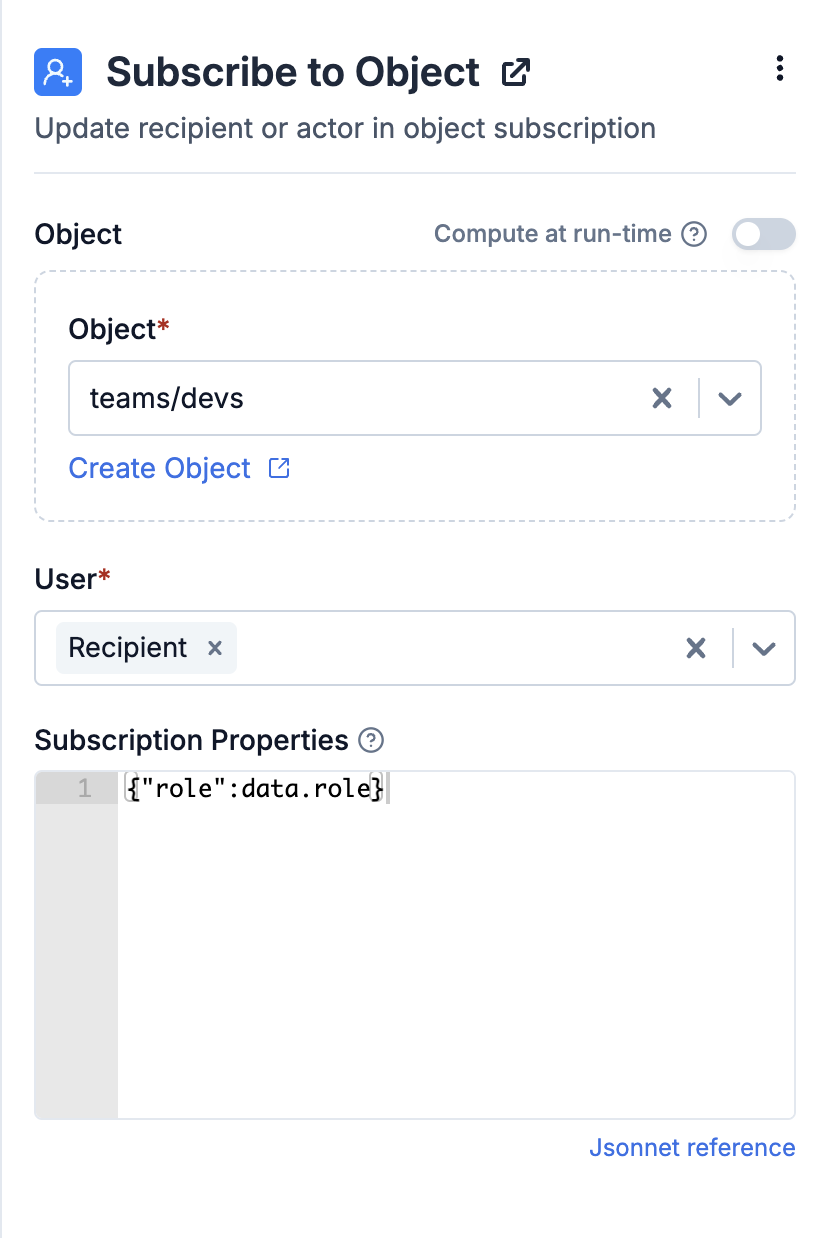You can use this node to dynamically add recipient or actor in object subscription based on an event or action.
If you have event-based data coming from third-party systems, you don’t need to write custom object subscription APIs in your codebase. Simply send events to SuprSend, and let the workflow handle object subscriptions. For example, when someone subscribes to a topic (like a tournament), you can automatically add them as a subscriber to the corresponding object. This ensures they receive all relevant notifications about topic-related activities without manual intervention.

Compute and create objects at runtime
You can either add users to a pre-defined object or compute object on the fly using workflow input data. While defining object, both ID and type are mandatory. Type defines the group that object belong to (example, teams, departments). Dynamic object are defined in handlebars format as {{...}}.
Computed Object will only be created if Create object if it doesn't exist setting is ON.
One common use case of creating object dynamically is when you need to create different objects based on user topic subscription. For example, there are multiple player tournaments happening and you want to create a separate object for each tournament. Object ID in such case can be {{tournament_id}} and type tournaments.
Both object ID and type only supports following characters- `a-z,0-9,-,_`. Ensure that the variable resolves to a valid format; otherwise, object creation will fail.
Subscription properties
Subscription properties are the set of variables defining relationship between a subscriber and an object. During a workflow execution, these properties can be accessed under the recipient.subscription namespace as recipient.subscription.property_key. Subscription properties are added in JSONNET format. You can read more about object subscription here.

